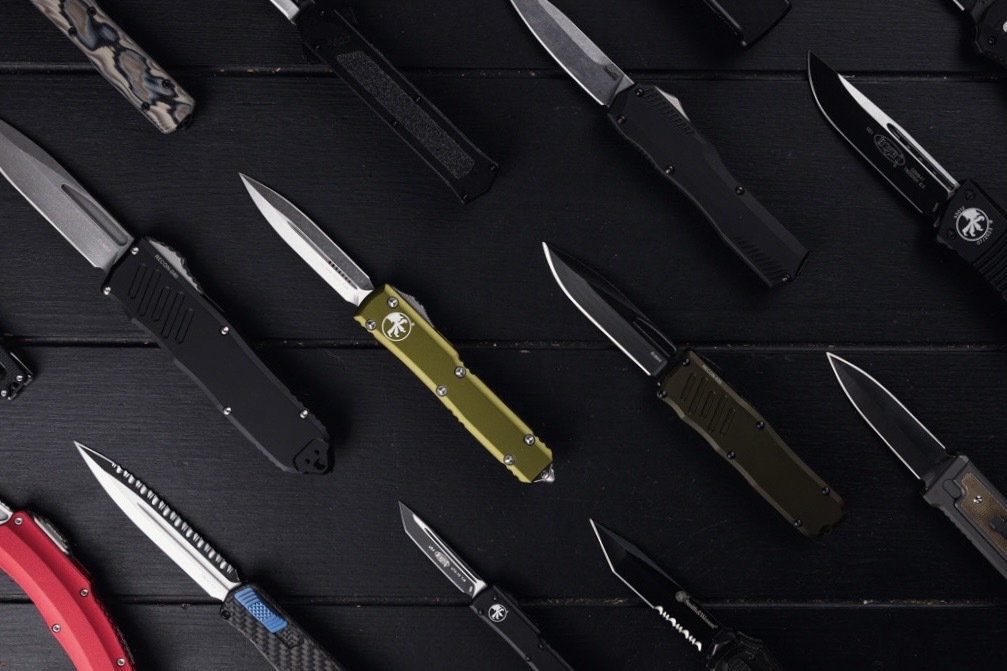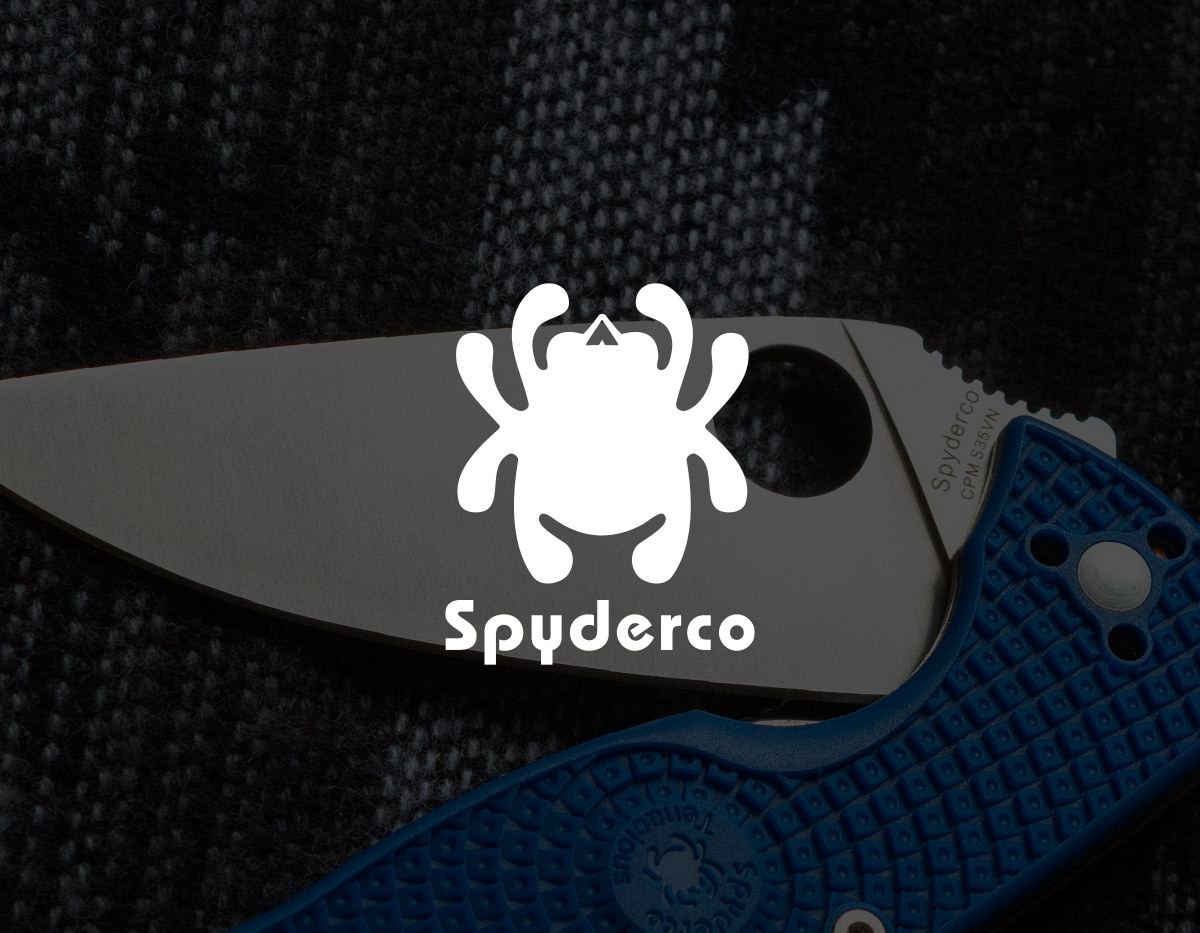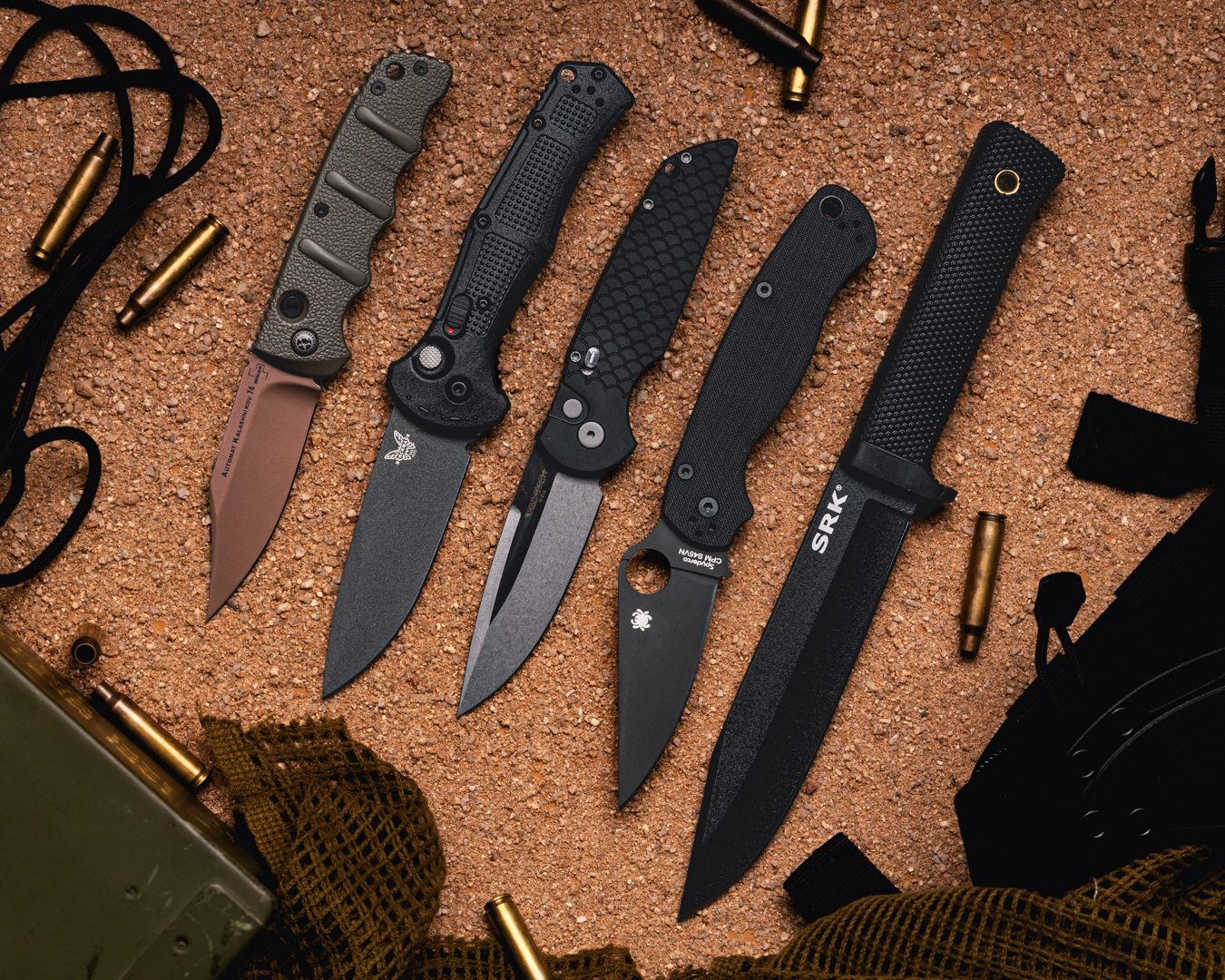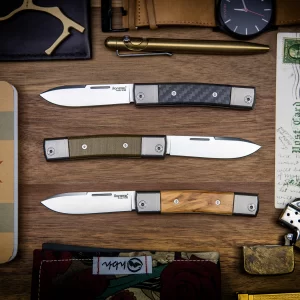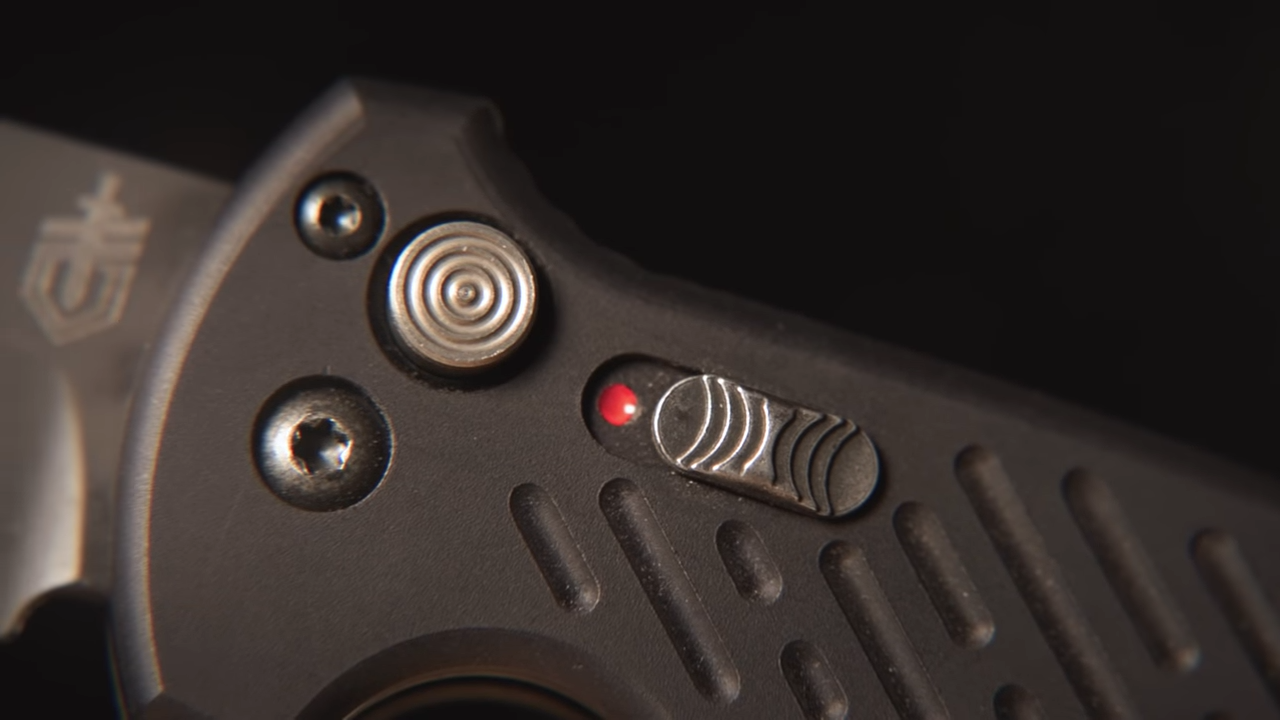At some point in your life, you probably saw some movie or played some video game that had some character, who was the epitome of cool, who carried a knife. Not just any knife, but something that could be deployed into action wicked fast and was as cool as the person wielding it.

That epic knife is called a switchblade, and most of the country thinks they’re illegal. But are they? If you live in the USA, you are bound by federal law, state law, and local law, and there are knife laws at each of these levels. We will discuss them in this article, but it’s all for naught if we don’t know what a switchblade even is.
The Legal Definition of Switchblade
Before you read any further, please note: The author of this article is a writer for Blade HQ, and Blade HQ is a knife retailer. He is not a lawyer, and Blade HQ is not a law firm. The legal analysis below is not guaranteed in any form. If you are even the least bit worried about the legality of a knife in your area, seek real legal advice (from a real lawyer) before buying it.
Now, with that out of the way,
Not all knives are switchblades, but because “switchblade” is more fun to say than “knife”, the term is often a misnomer. United States Code Title 15 Chapter 29, often called the Federal Switchblade Act (which will be referenced at length in this article) defines a switchblade as any knife with:
- A blade that opens automatically, either by
- pressure on a button or other device
- Think side opening autos like the Pro-Tech TR-3 or OTFs like the Microtech Ultratech
- “operation of inertia, gravity, or both”
- Think butterfly knives like the Kershaw Lucha
- pressure on a button or other device
This means the following are, legally speaking, not switchblades.
- Spring-Assisted Knives
- The law excludes knives that feather a “spring, detent, or other mechanism creating a bias toward closure”. Spring-assisted knives have a spring that must be overcome before the knife can open.
- Manual Knives
- Even if you can flick your knife open without touching anything, if it has a detent or something similar, you’re in the clear.
Well, that sounds like what I’m after. Can I buy one?
The law prohibits “manufacture, sale, or possession” of the switchblade knives in “any territory or possession of the United States, within Indian country…, or within the special maritime and territorial jurisdiction of the United States”, punishable by “not more than $2,000 or [imprisonment] of not more than five years, or both”.
But, as in most things in life, details are everything, and there are some exceptions to the law of which most of the knife community is aware.
- This law regulates switchblades as far as “interstate commerce” is involved. Under most circumstances, it doesn’t regulate customers and merchants. This law also makes it illegal to import switchblades.
- “Any common carrier or contract carrier” is not penalized for shipping switchblades, even across state lines. That’s why, when you order a switchblade from Blade HQ, we can ship it right to your door, with no federal law hanging over anyone’s head.
- The USPS is bound by “injurious and non-mailable” laws, which include switchblades. If you need to mail one, UPS and FedEx are better options.
- State laws may differ.
- Military members and employees are permitted to own, carry, and use switchblades in the “performance of [their] duty”.
- Most states include this provision as well, and in many cases, it extends to police, EMS, and fire departments.
- People with one arm are permitted to own and use any switchblade with a blade under 3”.
- State laws may differ.
Long story short, Uncle Sam would prefer you didn’t buy a switchblade, but he has a hard time forcing you.
But don’t get your hopes up yet, the state and municipality you live in have the last word.
Some states ban switchblades outright (like Hawaii), and some don’t regulate knives hardly at all (like Texas). Some cities (like Boston) have much stricter laws than their states (like Massachusetts). Some states have laws about how you carry (concealed, unconcealed). Getting into the details of each state would be a much larger endeavor than this article can withstand, but the American Knife and Tool Institute (AKTI) has a wealth of information on various knife laws in various states, including links to passed legislation. The AKTI’s website, as well as the text of the US code, served as the basis for this article. If you’re interested in learning about state laws that apply to you, the AKTI is a great place to start.
California knife laws get special attention because of their restriction on automatic knives with blades longer than two inches. Most companies who make autos make a CA-legal variant, like the Kershaw Launch 4, the Pro-Tech Runt series, the Microtech Exocet, and others.
If you already have a switchblade, but you found out it’s illegal where you are, don’t freak out! Many states allow ownership but prohibit carry. You can keep your automatic in your collection, and so long as you stay out of trouble, the cops will not kick down your door and search your house for it. They have much bigger fish to fry.
Conclusion
Switchblades may be a bit of a controversial figure so far as the law is concerned. You can get lost for hours researching the laws on the subject, but the AKTI, other knife advocacy organizations, and lawyers in your area can help you determine if a switchblade is legal for you. If they are (and you might be surprised), a switchblade can be a spicy addition to your collection. If you live in a state that allows you to have automatic or switchblade knives, check out our best sellers at BladeHQ.com.

